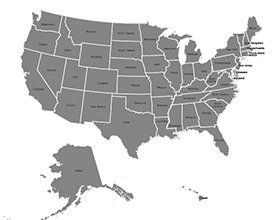Benefit Buzz - August 2025
Benefit tips brought to you by MFC Benefits, LLC

Learn more about the OBBB Act and the Supreme Court upholding ACA's Preventative Care Mandate.
OBBB ACT INCLUDES CHANGES FOR EMPLOYEE BENEFITS
On July 4, 2025, President Donald Trump signed the "One Big Beautiful Bill Act" (OBBB Act) into law. The OBBB Act includes a variety of changes for employee benefit plans, most of which are effective for 2026. Key changes include the following:
Health savings accounts (HSAs) - Effective Jan. 1, 2026, the OBBB Act allows individuals with direct primary care (DPC) arrangements to make HSA contributions if their monthly fees are $150 or less ($300 or less for family coverage). These dollar limits will be adjusted annually for inflation. A DPC arrangement is a subscription-based health care delivery model where an individual is charged a fixed periodic fee for access to medical care consisting solely of primary care services. In addition, the OBBB Act treats DPC fees as medical care expenses that can be paid using HSA funds.
Telehealth exception for high deductible health plans (HDHPs) - The OBBB Act permanently extends the ability of HDHPs to provide benefits for telehealth and other remote care services before plan deductibles have been met without jeopardizing HSA eligibility. This extension applies to plan years beginning after Dec. 31, 2024.
Dependent care assistance programs (DCAPs) - Effective Jan. 1, 2026, the OBBB Act increases the maximum annual limit for DCAPs from $5,000 to $7,500 ($3,750 for married individuals filing separately). The new limit is not adjusted for inflation going forward.
Student Loan Assistance - The OBBB Act permanently extends the student loan payment option for education assistance programs and adjusts the annual $5,250 limit for inflation beginning in 2027.
Trump Accounts - The OBBB Act creates a new type of tax-advantaged savings account for children, named Trump Accounts, effective for 2026. Employers may make tax-free contributions to the Trump Account of an employee's dependent of up to $2,500 (as adjusted annually for inflation beginning after 2027).
SUPREME COURT UPHOLDS ACA'S PREVENTIVE CARE MANDATE
On June 27, 2025, the U.S. Supreme Court upheld a key component of the Affordable Care Act's (ACA) preventive care mandate. As background, the ACA requires non-grandfathered health plans and health insurance issuers to cover a set of recommended preventive services without imposing cost-sharing requirements, such as deductibles, copayments or coinsurance, when the services are provided by in-network providers. The recommended preventive care services covered by these requirements include evidence based items or services with an A or B rating in the U.S. Preventive Services Task Force (USPSTF) recommendations.
The plaintiffs in this case had religious objections to the ACA's preventive care mandate and challenged its legality on various grounds, including the USPSTF's recommendations being not constitutional because its members had not been validly appointed. The lower courts agreed with the plaintiffs; however, health plans and issuers were required to fully comply with the ACA's preventive care mandate without interruption while the lawsuit proceeded.
The Supreme Court reversed the lower court's decision and upheld the constitutionality of the USPSTF's recommendations. Due to the Court's ruling, the ACA's preventive care mandate remains in full effect and health plans and issuers are required to continue covering the entire range of recommended preventive care services without cost sharing.
Provided to you by MFC Benefits, LLC
© 2025 Zywave, Inc. All rights reserved
Download the PDF copy here.











